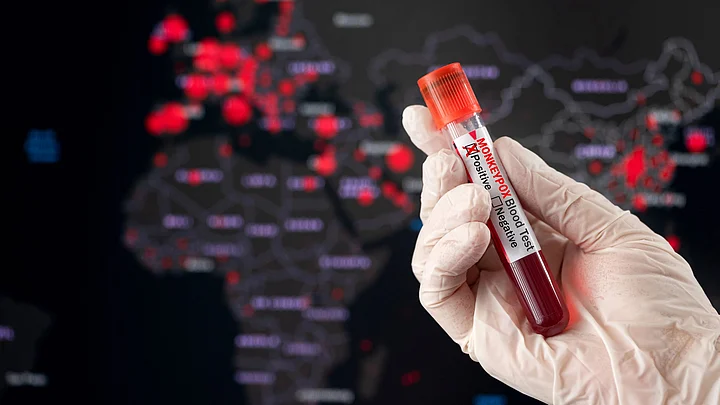The World Health Organization (WHO) on Saturday, 23 July, declared that the ongoing spread of monkeypox cases across the world is, in fact, a global health emergency.
The decision comes just days after the total cases of monkeypox in the world crossed 14,000.
So far, 5 deaths have been recorded since the begining of the year, when the outbreaks first began.
In a Twitter thread, the WHO chief, Tedros Adhanom Ghebreyesus, aid, "We have an outbreak that has spread around the world rapidly, through new modes of transmission, about which we understand too little and which meets the criteria in the International Health Regulations."
What happens next as far as the monkeypox outbreak goes, now that it is a global health emergency? Also, what is a global health emergency?
What Did the WHO Say?
According to the WHO, the level of risk that monkeypox poses is moderate globally.
However, the WHO also emphasised that there is a clear risk of "further international spread." Although they advice caution, they added, "the risk of interference with international traffic remains low for the moment."
All things considered, the WHO said the monkeypox outbreak "represents a public health emergency of international concern."
While Monkeypox is endemic to parts of West and Central Africa, the WHO has declared that it will stop using the term endemic to differentiate the two types of nations, for a unified response.
Monkeypox: What is a Global Health Emergency
The official term for a pandemic of international, global proportions isn't a Global Health Emergency. It's technically classified as a Public Health Emergency of International Concern (PHEIC) under the International Health Regulations (IHR), by the WHO.
In simple terms, a PHEIC or a global health emergency is “an extraordinary event which is determined to constitute a public health risk to other States through the international spread of disease and to potentially require a coordinated international response”.
This definition suggests a situation that is:
serious, sudden, unusual or unexpected;
carries implications for public health beyond the affected State’s national border; and
may require immediate international action.
With monkeypox cases reaching potential community transmission levels in parts of the world it has never existed in, the outbreak meets all the requirements of a global health emergency.
How Many Times Has WHO Declared a Global Health Emergency?
The responsibility of determining whether an event is within this category lies with the WHO Director-General and requires the convening of a committee of experts – the IHR Emergency Committee. It is a rarely used designation.
The last time the term was used by the WHO was at the start of the COVID-19 pandemic in 2020.
Prior to that, the UN body had declared the Ebola outbreak in the Democratic Republic of the Congo (DRC) a public-health emergency of international concern (PHEIC).
This was the fifth time that the agency had declared a global emergency. The previous four include the H1 virus that caused an influenza pandemic (2009), West Africa's Ebola outbreak (2014-2016), polio (2014) and Zika virus (2016).
Declaring the coronavirus outbreak a public health emergency of international concern would lead to a boost in public health measures, funding and resources to prevent further spread.
Restrictions and higher security at transit points, and airport screening of passengers has already begun in many of the affected and unaffected regions.
However, according to the WHO, "interference with international traffic remains low for the moment."
The Role of the Emergency Committee
The Emergency Committee was essentially formed to review the latest data on the transmission of the illness, and advice the Director-General of the WHO on whether or not it should be declared a Public Health Emergency or not.
WHO maintains an IHR roster of experts and the members of an IHR Emergency Committee are selected from this roster and/or WHO expert advisory panels and committees.
Along with this, the Emergency Committee will continue to provide advice to the Director-General throughout the duration of the PHEIC, including any necessary changes to the recommended measures and on the determination of PHEIC termination.
(With inputs from The Quint's archives)
(At The Quint, we question everything. Play an active role in shaping our journalism by becoming a member today.)
